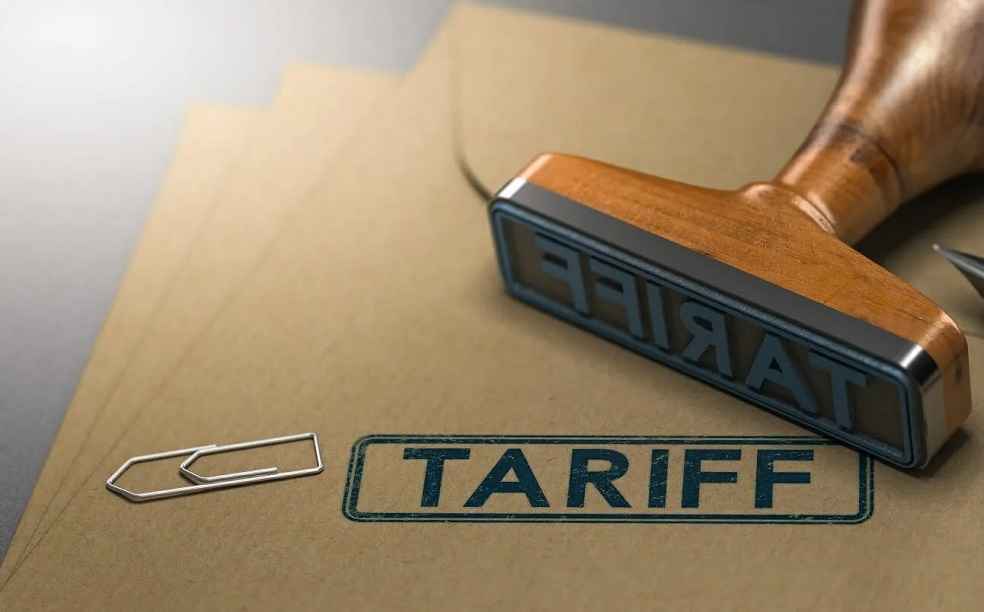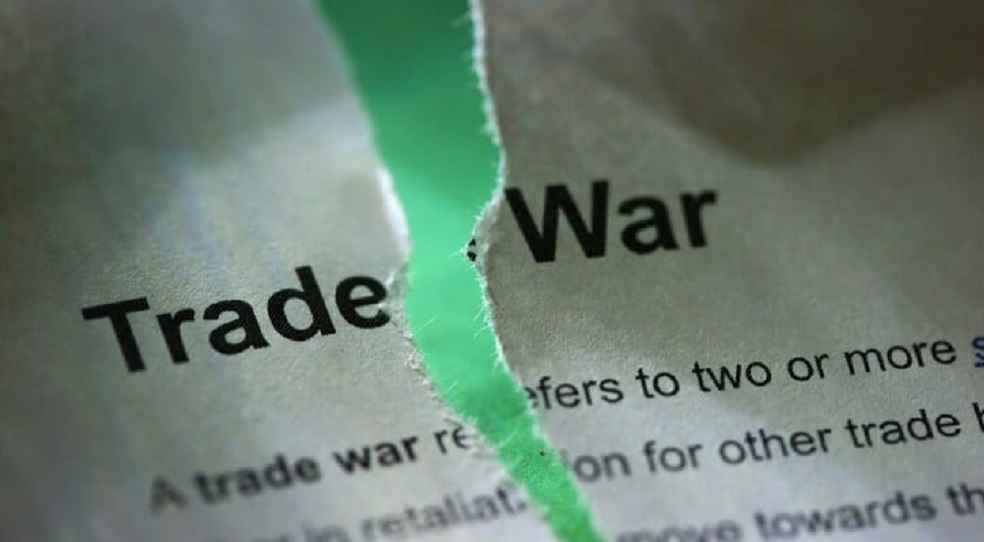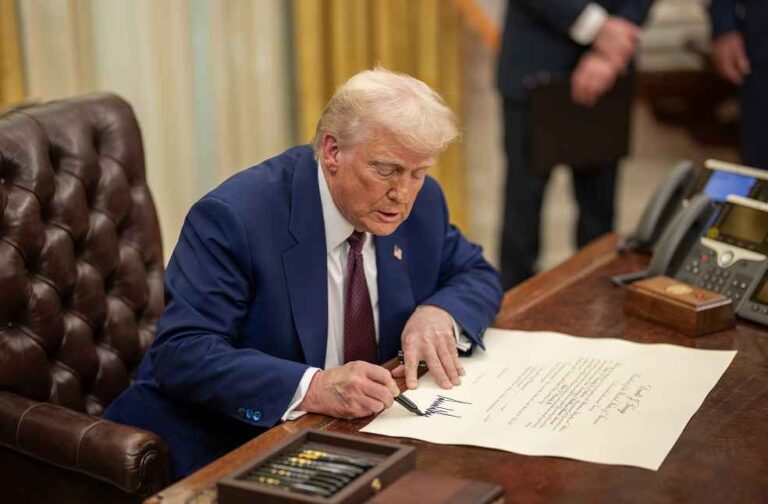Donald Trump is readying a new wave of reciprocal tariffs, global markets are showing signs of unease amid growing fears of a trade war. Several Republican senators have also expressed concern over the strategy, which many warn could provoke retaliatory measures from major US trading partners, including China, Canada, and the European Union.
Speaking on Monday, Trump stated he would be ‘very kind’ to trading partners when unveiling the fresh tariffs—potentially as early as Tuesday night. The announcement comes amid signs of declining growth forecasts, weaker business confidence, and public comments from White House officials suggesting a readiness to absorb short-term economic hardship. Goldman Sachs, meanwhile, raised its projections for underlying inflation through the end of 2025.
Retaliatory moves are already underway. China and Canada have imposed counter-tariffs on US goods, while the EU has announced its own measures set to begin by mid-April. More responses may follow later this week.
International Monetary Fund chief Kristalina Georgieva said on Monday that while the tariffs are causing anxiety, they are unlikely to have a dramatic global impact. However, Ryan Sweet of Oxford Economics warned observers to “expect the unexpected”, anticipating that Trump would “take aim at some of the largest offenders”.

In addition to country-specific tariffs, Trump is expected to introduce sector-specific levies—targeting industries such as pharmaceuticals and semiconductors. Auto tariffs previously announced are set to take effect on Thursday.
Economists anticipate the new measures will target countries with long-standing trade imbalances—referred to by US Treasury Secretary Scott Bessent as the ‘Dirty 15’ for their continued trade surpluses with the United States. These include China, the EU, Mexico, Vietnam, Taiwan, Japan, South Korea, Canada, and India. Some reports suggest India may pre-emptively lower certain duties to limit exposure.
European Central Bank President Christine Lagarde urged Europe to move towards economic self-reliance, calling the current situation an ‘existential moment’ in an interview with France Inter radio. On a separate note, British Prime Minister Keir Starmer held discussions with Trump over ongoing UK- US trade negotiations, while German Chancellor Olaf Scholz affirmed the EU’s readiness to respond firmly, though he remained open to compromise.

Greta Peisch, a partner at law firm Wiley Rein, suggested it is “entirely possible” that some of the planned tariffs could be swiftly paused or scaled back. In February, the US temporarily suspended steep tariffs on Mexican and Canadian goods during ongoing negotiations.
Trump, who has long claimed the US has been “ripped off by every country in the world”, said the upcoming tariffs represent a “Liberation Day” for America. Asked for specifics, he told reporters, “You’re going to see in two days, which is maybe tomorrow night or probably Wednesday,” while also promising a relatively “kind” approach.
Some Republican lawmakers have taken a stand against Trump’s move to impose tariffs on Canada. Senator Susan Collins warned of economic harm to her home state of Maine and voiced support for a resolution to block the tariffs. Senator Thom Tillis also indicated he might back the resolution, emphasising the need to “fight battles with our foes first”.

Meanwhile, China, South Korea, and Japan have agreed to boost free trade among themselves, a development that precedes Trump’s expected tariff announcement. Trump, however, downplayed the likelihood of losing allies to Beijing and suggested a deal over TikTok could be linked to tariff discussions with China.
White House Press Secretary Karoline Leavitt confirmed plans to announce country-based tariffs on Wednesday, while reaffirming Trump’s intention to implement separate industry-specific measures.
Market reactions have been mixed. While European and Asian indices fell, US markets managed to stay in positive territory, with the Dow and S&P 500 showing modest gains. Nonetheless, overall investor sentiment remains cautious, especially after Trump declared over the weekend that the new tariffs would affect ‘all countries.’
POLICY & LAW | Sahel Trio Enacts New Import Tax to Finance Alliance Plans



